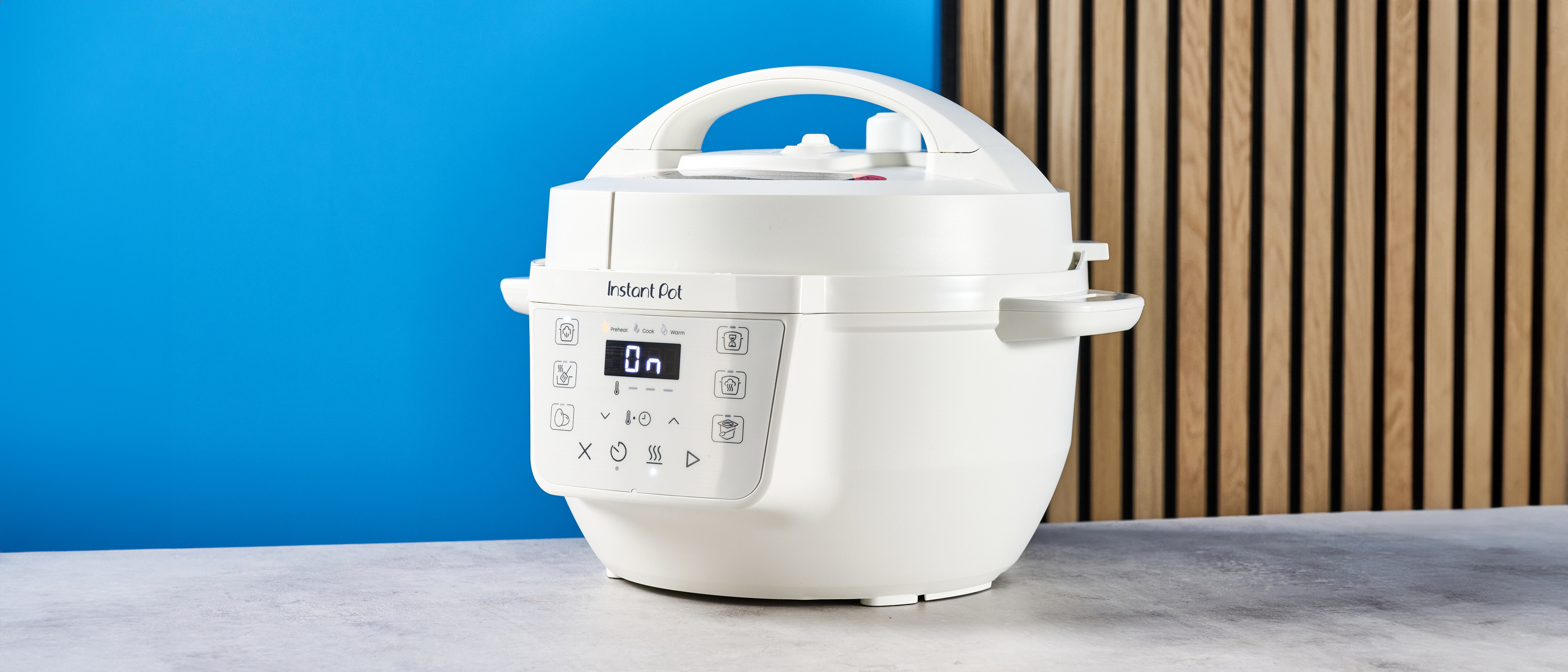A healthy gut could be the key to better sleep — 3 expert ways to improve yours
New research finds certain gut bacteria increases the risk of insomnia
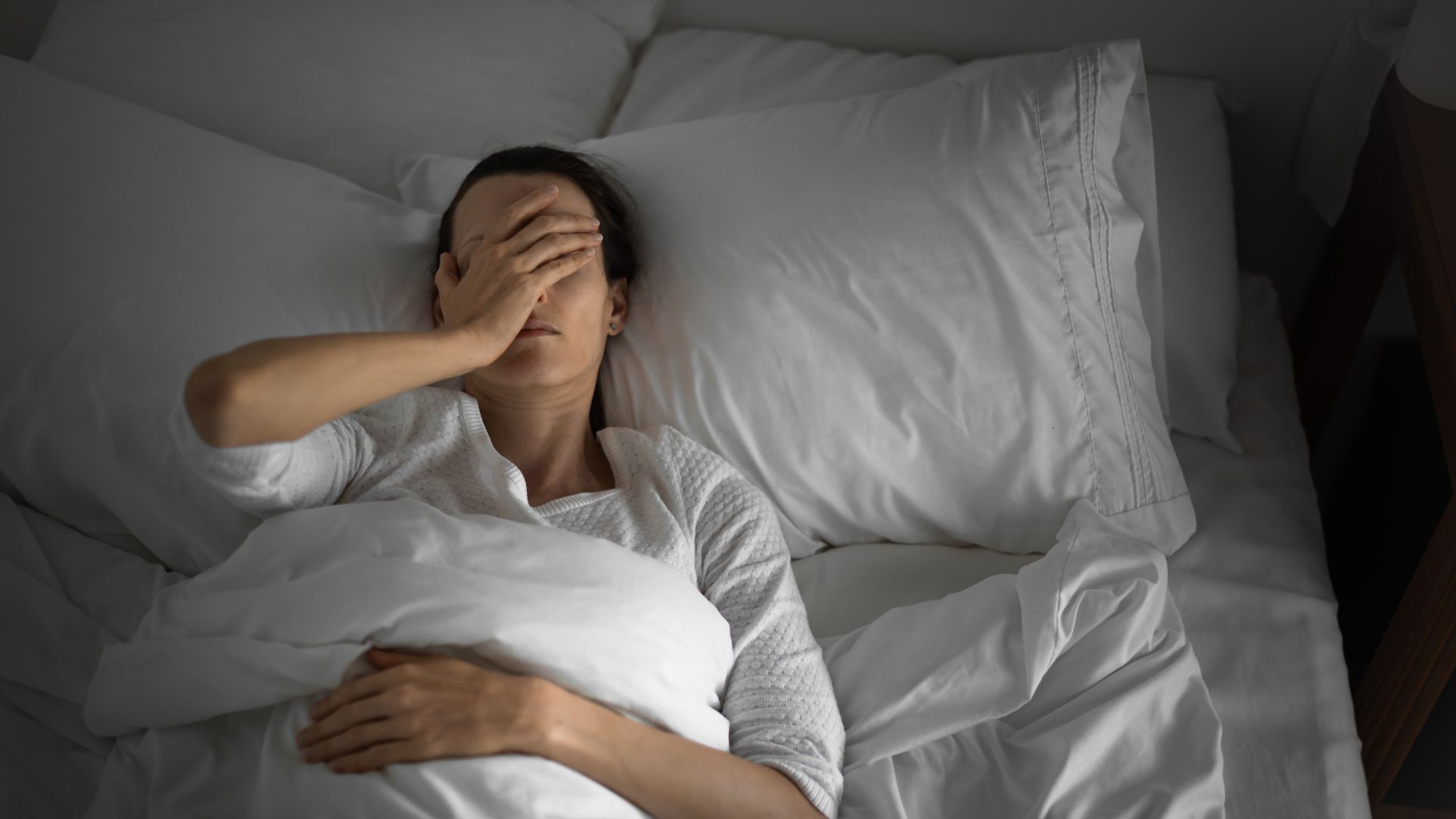
When you're thinking about what can impact your sleep and lead to issues with it, your gut health probably isn't the first thing that springs to mind.
But a recent study has discovered that certain types of gut bacteria are associated with the risk of insomnia, with one class of gut bacteria in particular strongly linked to an increased risk.
A common sleep disorder that affects both the quality and quantity of your sleep, insomnia is estimated to affect around 25-30 million people in the US at any one time, and around a third of adults in the UK.
Here, we're exploring the study findings in more detail, and speaking to an expert about the relationship between gut health and sleep, as well as getting advice on how to utilize your diet in order to get a better night's rest.
Key takeaways from the study
- Researchers analyzed data from over 400,000 people to look at the relationship between gut bacteria and insomnia
- They found that 14 groups of gut bacteria were associated with insomnia risk, while 8 groups showed a protective effect
- They also found that the Odoribacter class of gut bacteria in particular was significantly associated with insomnia risk
A recent study, published in the journal General Psychiatry, has analysed data from previous gut microbiome research, including reviewing data from 386,533 people with insomnia, 18,340 people from the MiBioGen alliance, and 8,208 people from the Dutch Microbiome Project.
The researchers were aiming to "evaluate the mutual influences between gut microbiota and insomnia," or in more simple terms, to look at how they affect one another.
Their results showed a complex relationship between gut bacteria and insomnia, as they found that a total of 14 groups of gut bacteria "may contribute to the risks of insomnia," while 8 groups of gut bacteria "displayed a protective effect on this condition."
Get instant access to breaking news, the hottest reviews, great deals and helpful tips.
Meanwhile, the Odoribacter class of gut bacteria was found to be associated in a significant way with a risk of insomnia.
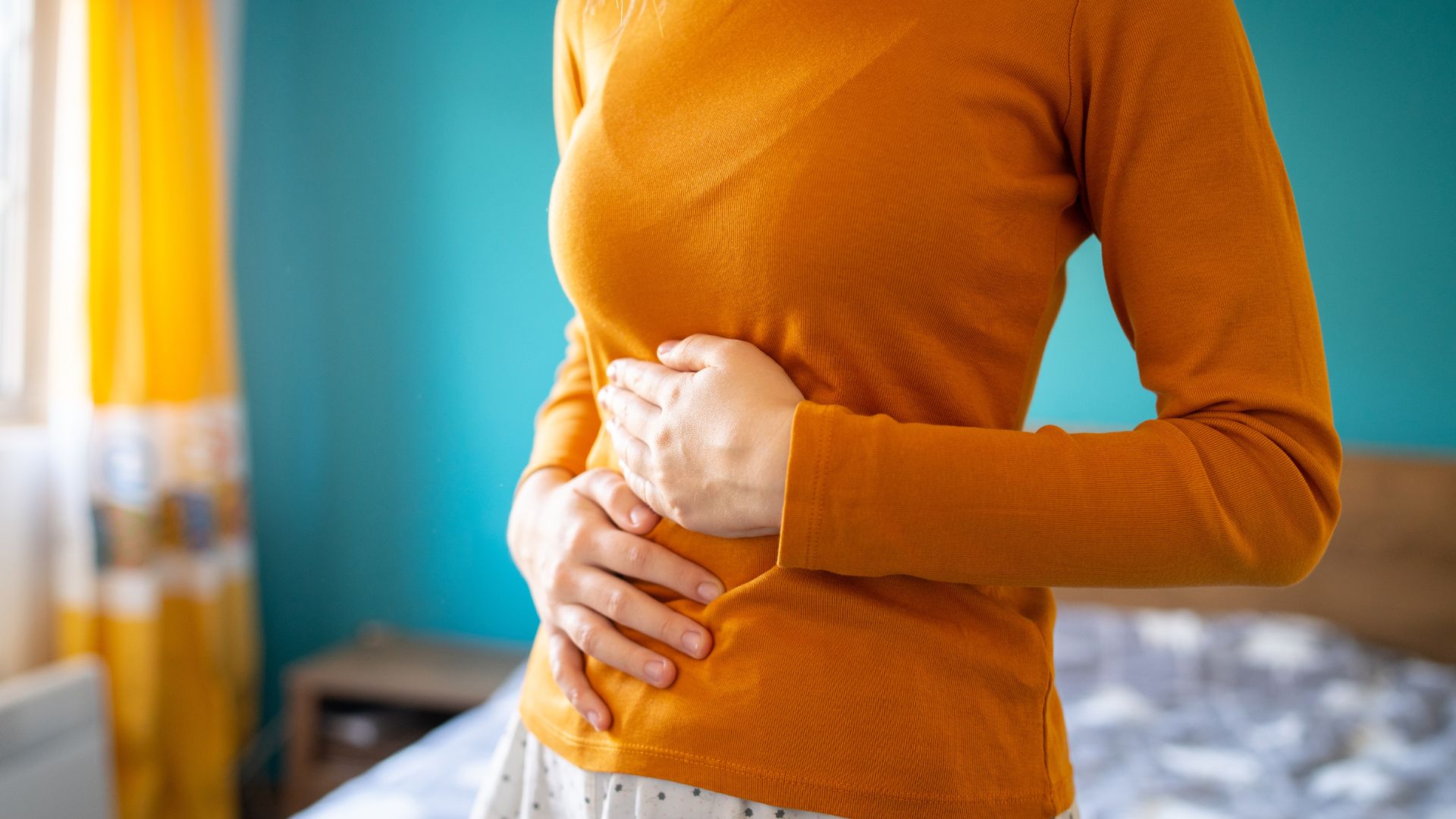
They also found that insomnia itself may have an impact on the quantity of certain gut bacteria. Their results showed that insomnia was associated with decrease in the abundance of seven groups of gut bacteria, and an increase in 12 groups.
“The balance of bacteria in the gut can influence neurotransmitters and hormones that regulate our sleep cycle so this study reinforces what we experts already know,” explains Robin Barrie Kaiden, a registered dietitian who was not involved with the study.
“These findings strengthen the growing body of evidence linking gut health and insomnia.”
However, the study's authors did note several limitations of the study, one of which was that the data used was all from participants from Europe. As a result, their findings may not apply to those who are from elsewhere, or of a different ethnicity, since gut microbiome make up varies depending on these factors.
Another was that diet and lifestyle were not accounted for, and these factors can affect the microbiome and benefit your sleep.
What’s the relationship between our gut and sleep?
Melatonin production
You may be familiar with melatonin, the hormone that is produced and released by the pineal gland in the brain, and helps us feel sleepy. However, our gut also plays a significant role when it comes to melatonin production.
“Gut bacteria help produce serotonin, which is then converted into melatonin, the hormone that regulates the sleep-wake cycle,” Kaiden says.
“The gut actually produces far more melatonin than the brain. A healthy, diverse microbiome supports better melatonin production, making it easier to fall asleep and stay asleep," she explains.
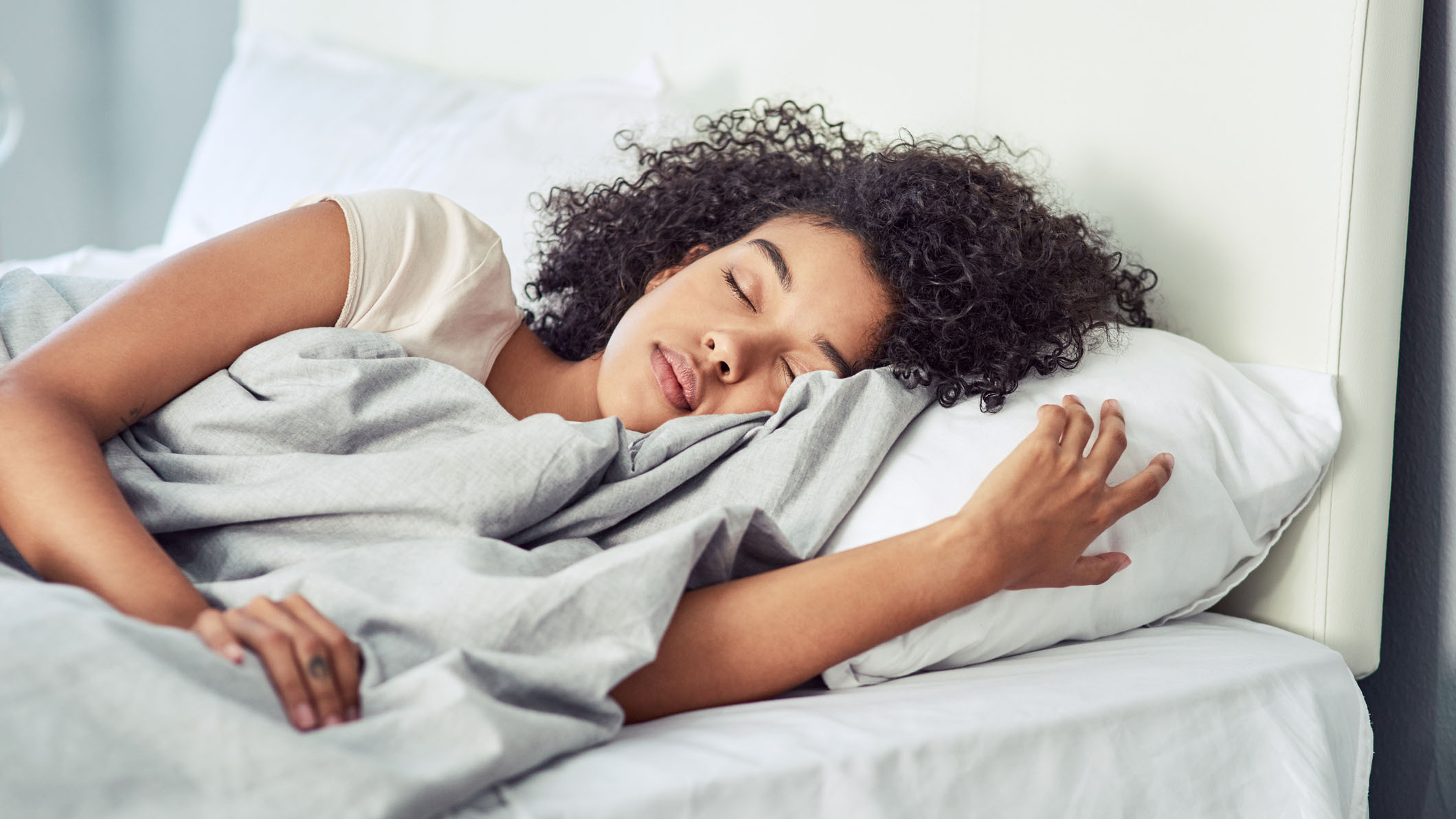
GABA production
“Certain gut bacteria produce GABA, a calming neurotransmitter that helps the nervous system relax and promotes deeper, more restorative sleep,” says Kaiden.
In fact, there has been research that has shown that GABA-rich foods can help improve insomnia.
However, Kaiden explains that when the gut bacteria mentioned above "are out of balance, GABA production decreases and this can make it harder to unwind and sleep well.”
Sleep deprivation
Kaiden explains that the "gut-sleep connection is a two-way street," and that "poor or inconsistent sleep can disrupt the diversity and natural rhythms of our gut bacteria."
“Over time, this can increase inflammation, impair neurotransmitter production, and create a cycle where poor sleep further weakens gut health. This, in turn, can worsen sleep quality.”
Unfortunately, this means that if you're sleep deprived, you may end up stuck in a vicious cycle where your poor sleep impacts your gut, which then leads to more poor sleep.
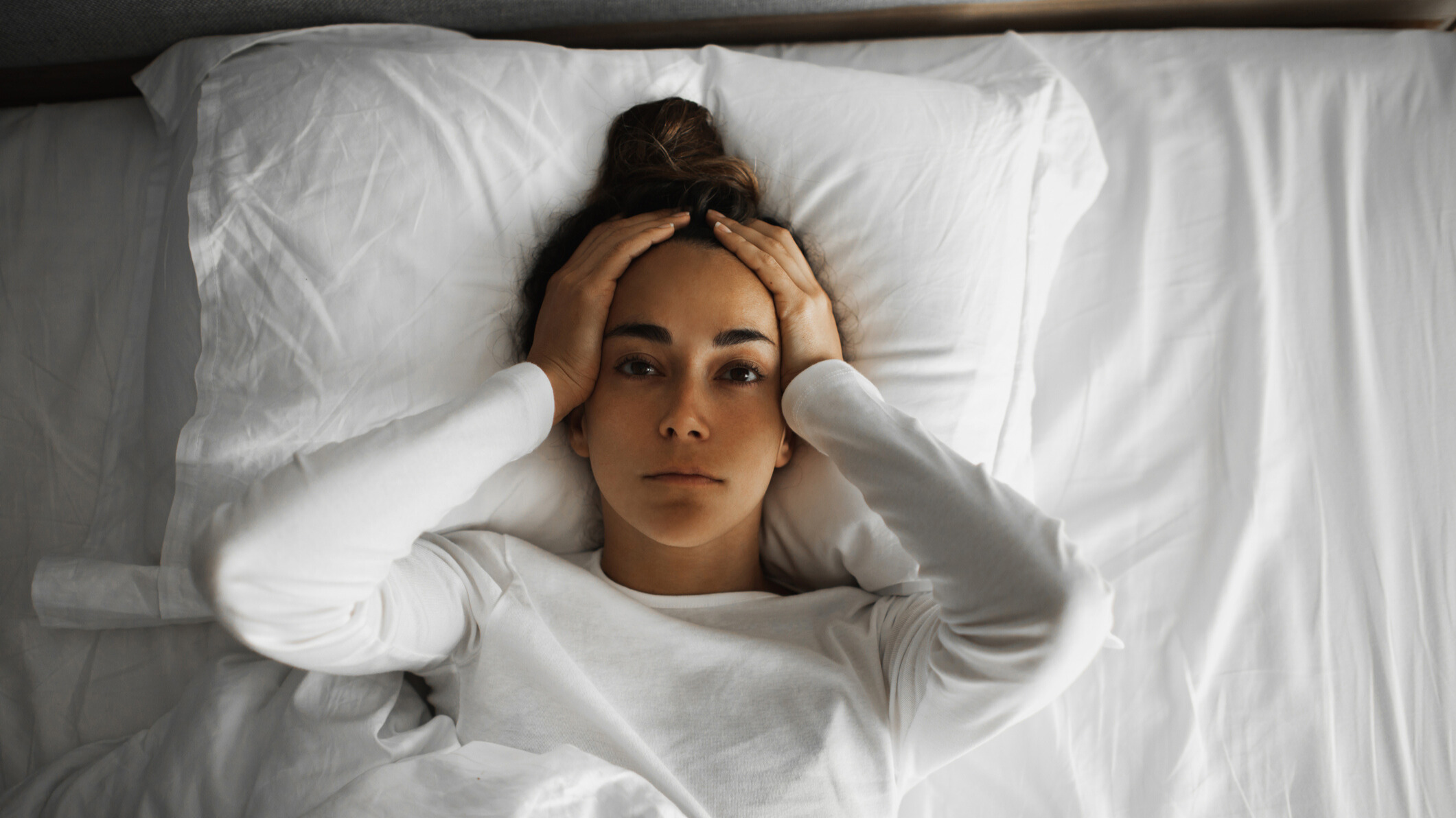
Sleep disorders
Research has already shown that there is a reciprocal relationship our gut and certain sleep disorders.
On one hand, studies have shown that insomnia and other sleep disorders such as obstructive sleep apnea can be harmful to the good bacteria in your gut.
However, a 2024 study published in the journal Nutrients, found disturbances in the composition and function of your gut microbiota "may be associated with the onset of sleep disorders."
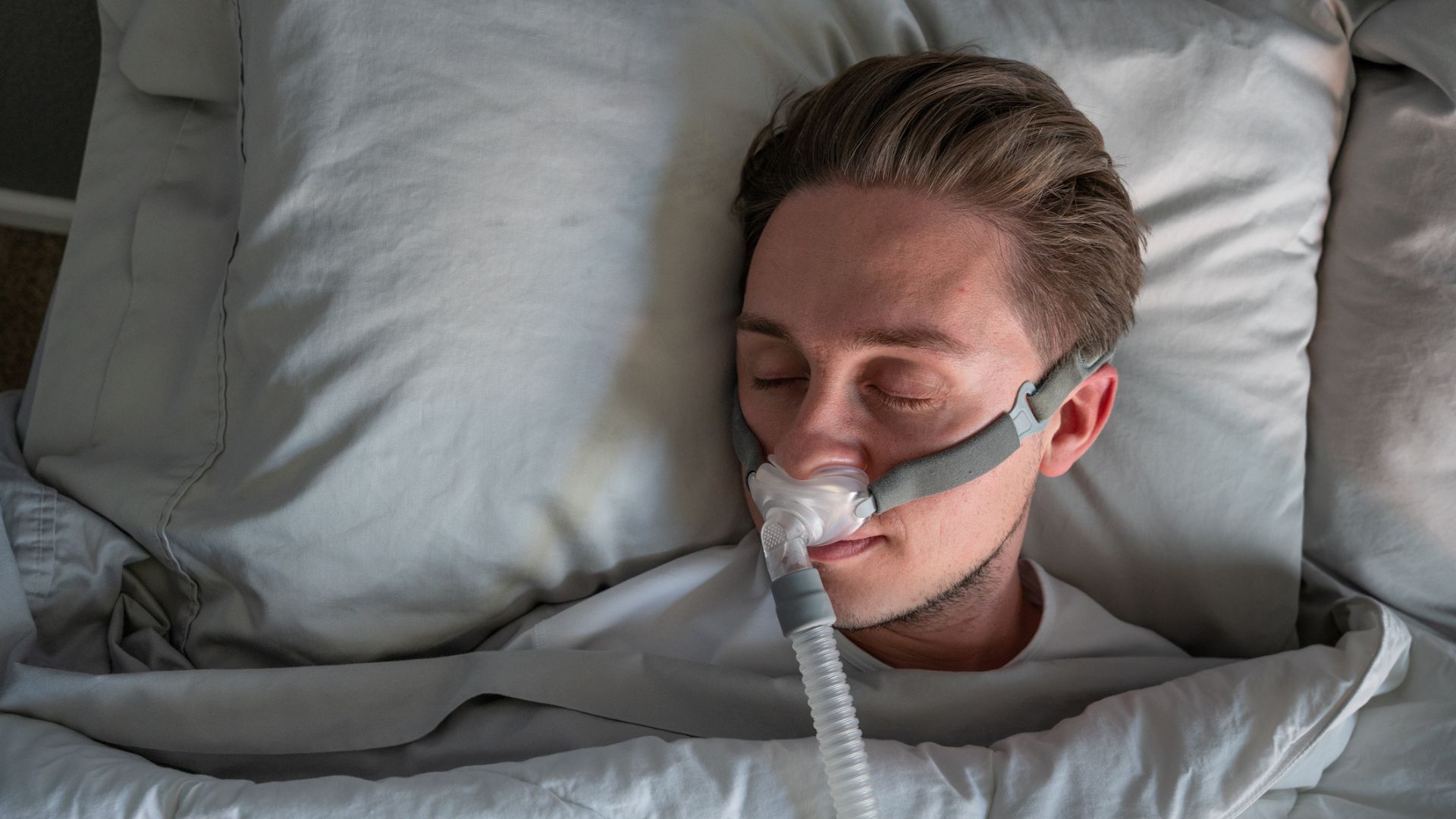
Circadian rhythm
A number of studies have also established a strong link between our body clock (circadian rhythm) and our gut microbiota.
It’s thought the bacteria in your gut is regulated by your day-to-day routine in terms of diet quality (the food choices you make) and the timings of when you eat.
When your routine changes, research suggests this can alter your gut microbial community structure, so eating well and keeping to regular meal times (as well as sleep/wake times) is important.
How to get better sleep through your diet
What we eat and how we nourish our bodies can play a big role in improving our gut bacteria (and general digestive health), and therefore how well we sleep. Here are Kaiden's top three tips.
Eat three balanced meals
“Consistent, nutrient-rich meals helps to regulate gut rhythms and stabilise blood sugar, which supports healthy sleep,” Kaiden advises.
So what kind of foods should we priortize in order to improve our sleep?
“Eating plenty of high-fibre foods is important such as vegetables, fruits, legumes and wholegrains," she says.
"These help to feed beneficial gut bacteria, improving microbiome diversity and supporting melatonin and GABA production."

Choose foods high in melatonin
“I would also advise including melatonin and tryptophan-rich foods in your diet,” Kaiden says.
As we've discussed above, melatonin is the 'sleepy hormone.' Tryptophan, meanwhile, is an amino acid that helps to produce serotonin. It's also a precursor to melatonin, as that serotonin is then converted to melatonin.
Kaiden explains that foods rich in both "will naturally support serotonin and melatonin production and include tart cherries, kiwis, bananas, turkey, fish, eggs, and yoghurt."
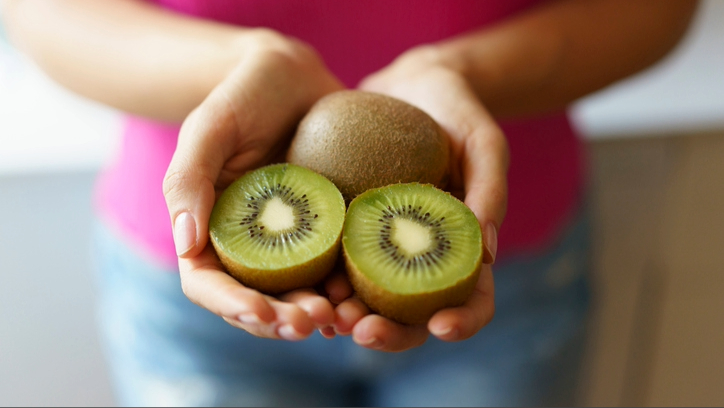
Limit ultra-processed and sugary foods
While we all get tempted by the snack and candy aisles from time to time, it's important not to let incredibly sugary, highly processed foods become a staple of your diet.
That's because they "can disrupt gut balance, drive inflammation and negatively affect your sleep,” Kaiden explains.
“Prioritising balanced meals, high fibre intake with proper hydration, along with gut-friendly foods can create a foundation for better digestion, a healthier microbiome and deeper rest," she says.

Julie writes about health, wellbeing and medical issues for a wide range of titles including Tom’s Guide, TechRadar, Be Healthy, Top Sante, Doctors.net.uk and many more. She is endlessly curious and loves writing about health as there’s always something new to find out more about. She’s also a member of the NUJ, Guild of Health Writers and Medical Journalists’ Association.
You must confirm your public display name before commenting
Please logout and then login again, you will then be prompted to enter your display name.
 Club Benefits
Club Benefits





